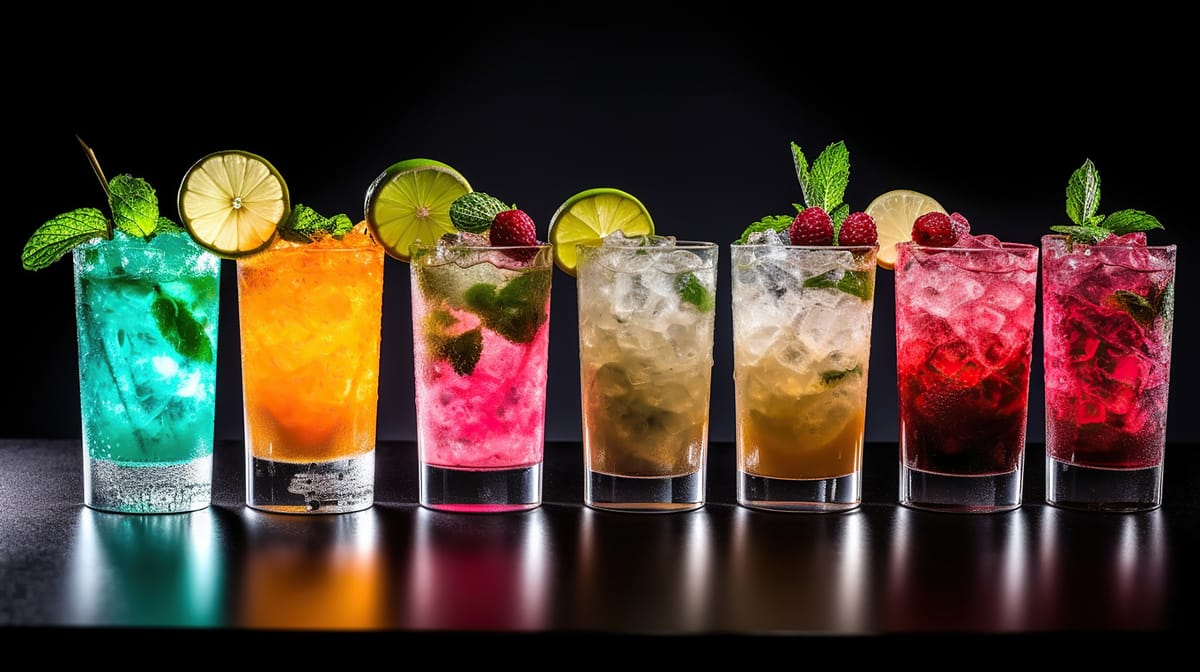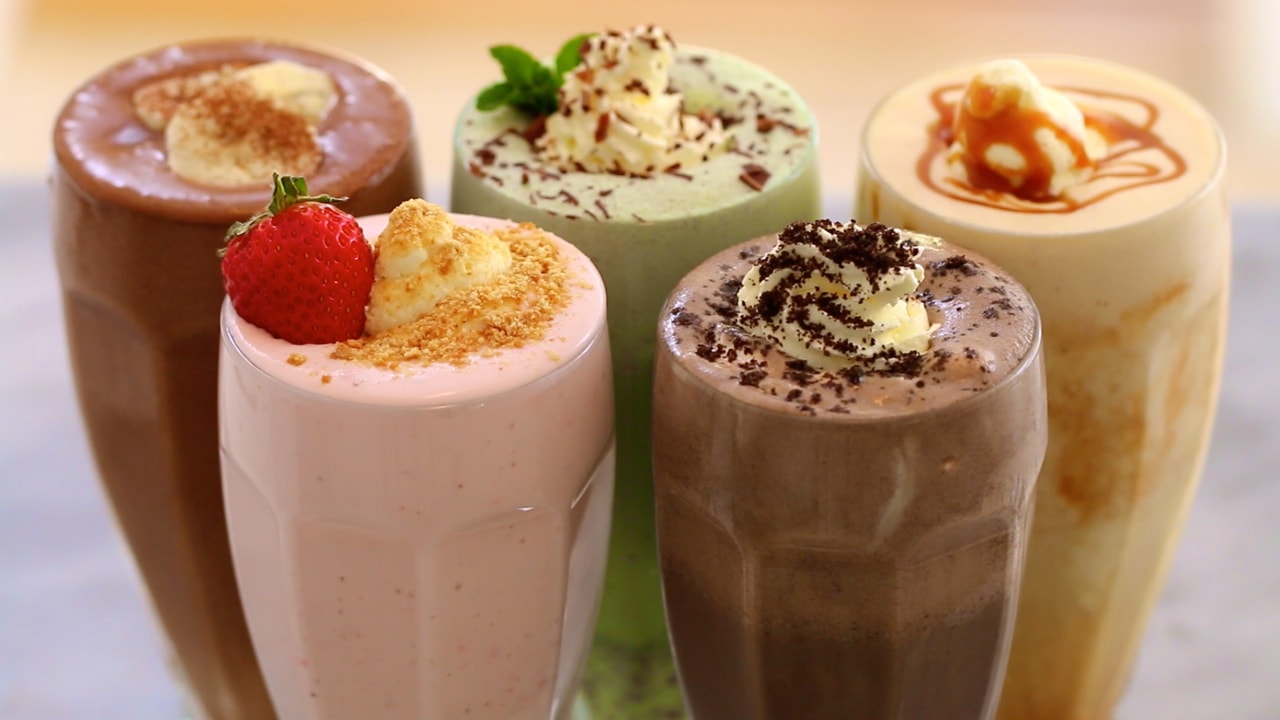Introduction
Consumer behavior refers to the behaviors and habits exhibited by the consumers of products as influenced by several factors among them price, supply, seasonal changes, attitudes and preferences and so on.[1] These behaviors are influenced by one’s personal predispositions, but may also be influenced by factors such as the environment. In this report, the behavior of consumers regarding purchase decisions shall be viewed over a continuous ten-day period and a pattern of behavior established thereafter.
Specific emphasis will be placed on the decisions made by consumers regarding their beverage consumption.The report shall also focus on a specific theory to explain the behavior exhibited by the particular consumer under review. The report shall link the behavior observed herein, with regards to purchase decisions and pattern, to a particular theory of consumer behavior.

According to the Consumer Personality theory of consumer behavior, individuals are dictated by the personality traits they possess in the process of consumption, and of decision making as regards consumption of goods and services. The theory holds that traits are the very chronic motivators that drive decision making and therefore influence the process of consumption and the decisions that attend to the act.[2]
Personality traits, empirical research has proven, help understand the factors that motivate individuals and influence their decisions to consume one product at the expense of another. Psychological studies of consumption along the lines of Consumer Personality have proven that inner psychological characteristics determine how consumers respond to their environment especially through the process of consumption.[3]
The Consumer Personality theory also holds that consumers tend to demonstrate a system of consistency between their values and the decisions they make as regards purchases.[4] This means that the things that consumers buy are as a result of their values and beliefs. Proponents of the consumer personality theory hold the view that persons with incomplete self-definitions tend to acquire by way of purchase, those commodities and services that they feel helps them complete their definition of self.[5]
These individuals acquire and display symbols associated with factors that they believe are associated with their perception of their ideal self. As such, internal factors of one’s personality are manifested externality through decisions to purchase a particular product, brand or name over another. Consumer behavior is therefore a product of internal self traits and predispositions.[6]
Personality traits of consumers can also be manifested through such individuals’ receptiveness to new products in the market.[7] Conservative individuals with rigid views and unyielding personalities are more likely to stick to older products and are less likely to embrace changes. On the other hand, individuals with liberal personalities are more likely to be open to, and to embrace changes in products and markets.
They are likely to be more receptive of new products and services.[8] The theory of Consumer Personality also holds that personality of an individual determines their materialism and as such dictates consumption volumes and patterns. Individuals with extravagant personalities, therefore, are more likely to spend more on consumption of commodities than are individuals with restrained personalities.
Ethnocentric consumers are least likely to consume products from foreign manufacturers[9] unless no other viable alternative is available. The theory of consumer personality states that such ethnocentric consumers are likely to be selfish and in most instances are likely to be extravagant in nature. This means they are most likely to consume goods and services in high volumes.
This specific kind of consumer personality trait is more pronounced in the Western nations that are highly industrialized and have a generally high income population. Since such nations produce most of their citizens’ needs, the citizens are less likely to venture to foreign made commodities.[10] The theory of consumer personality attributes these particular behaviors to internal self-pride coupled with a given degree of selfishness.
In the case of the journal, it is evident that the personality theory of consumer behavior can be used to explain the decisions that I made as regards my consumption. These consumption decisions are outlined in my consumer behavior journal.
For instance, I am a Westerner and since I come from a culture of high consumption, I’d prefer milk and other beverages that add a bigger value to my life than, for example, soft drinks and coffee. This is despite the fact that the drinks of my choice are slightly pricier than the other alternatives. Just as is consistent with our culture I tend to spend more on my beverage of choice just as my peers are.
From the consumer behavior journal I kept, it can be discerned that on average, I would consume as much as 40 serves of my beverage of choice if the price allowed, up to a certain level, in this case, $ 2.0. However, I would be constrained by the high pricing of the beverage.
While my choice of beverage is not cast in stone and would most likely shift with a substantial change in price, my first preference would be milk and water followed by soft drinks.
The first choice, however, is substitutable if its price shifts by 25% or more. My choice of milk and water is informed by my wish to be more energetic. I am also a bit ethnocentric and therefore will prefer to consume beverages made locally hence my choice of milk and water as my most preferred beverage.
In my own view, I am an ethnocentric consumer that prefers beverages, mostly the milk and water that are manufactured locally. This is why my second choice would also be a locally manufactured soft drink. I also have an inner feeling to feel more powerful, and energetic, or at least appear to be, hence my choice of milk and water as the preferred beverage. My personality is not extravagant[11] therefore my consumption patterns and volumes are in tandem with this. While I prefer locally made beverages and goods that are, ideally slightly more expensive, I would not hesitate to switch my choice of drink if the price of my second choice was substantially lower.
My purchase decisions are dependent on both the price of the product and the origin of said products. While I prefer to make my own decisions, the people around me, may influence my choice of beverage from time to time. For instance, if am out with friends, I’d gladly substitute my milk and water for a coffee, a cup of tea, a milkshake or a soft drink just as my company would. However, there are times when I would not change my preference because of my company[12].
For instance, I would not consume energy drinks because my companions are. There are some purchases however that may not be substituted for others, for instance, I would not give up on water, if I really needed it, to take coffee because the two are not really substitutable. According to the consumer personality theory, consumers tend to demonstrate a system of consistency between their values and the decisions they make as regards purchases. Just as is expressed by the theory, I believe in a healthier existence where water and milk, for example, are of paramount importance and therefore not substitutable for any other beverage.

The report in this case draws a clear relationship between the decisions made by a consumer and their own innate traits. The Consumer Personality theory of consumer behavior stresses that those invisible determinants of an individual’s character also tend to influence the decisions made by such individuals as regards decisions to consume[13], particularly, quantity and product type. From the evidence presented by my case of the consumer behavior journal, it is clear that personality and individual predispositions go a long way in determining one’s choices particularly in relation to consumption.
Bibliography
Duhachek, Adam, and Dawn Iacobucci. “Consumer personality and coping: Testing rival theories of process.” Journal of Consumer Psychology 15, no. 1 (2005): 52-63.
Liberman, Nira, Yaacov Trope, and Cheryl Wakslak. “Construal level theory and consumer behavior.” Journal of Consumer Psychology 17, no. 2 (2007): 113-117.
Lin, Long-Yi. “The relationship of consumer personality trait, brand personality and brand loyalty: an empirical study of toys and video games buyers.” Journal of Product & Brand Management 19, no. 1 (2010): 4-17.
Michael, Robert T., and Gary S. Becker. “On the new theory of consumer behavior.” The Swedish Journal of Economics (1973): 378-396.
Mowen, John C. The 3M model of motivation and personality: Theory and empirical applications to consumer behavior. Springer Science & Business Media, 2000.
Mulyanegara, Riza Casidy, Yelena Tsarenko, and Alastair Anderson. “The Big Five and brand personality: Investigating the impact of consumer personality on preferences towards particular brand personality.” Journal of Brand Management 16, no. 4 (2009): 234-247.
Orth, Ulrich. “Consumer personality and other factors in situational brand choice variation.” The Journal of Brand Management 13, no. 2 (2005): 115-133.
[1] Liberman, Nira, Yaacov Trope, and Cheryl Wakslak. “Construal level theory and consumer behavior.” Journal of Consumer Psychology 17, no. 2 (2007): 113-117.
[2] Michael, Robert T., and Gary S. Becker. “On the new theory of consumer behavior.” The Swedish Journal of Economics (1973): 378-396.
[3] Michael, Robert T., and Gary S. Becker. “On the new theory of consumer behavior.” The Swedish Journal of Economics (1973): 378-396.
[4] Mulyanegara, Riza Casidy, Yelena Tsarenko, and Alastair Anderson. “The Big Five and brand personality: Investigating the impact of consumer personality on preferences towards particular brand personality.” Journal of Brand Management 16, no. 4 (2009): 234-247
[5] Mulyanegara, Riza Casidy, Yelena Tsarenko, and Alastair Anderson. “The Big Five and brand personality: Investigating the impact of consumer personality on preferences towards particular brand personality.” Journal of Brand Management 16, no. 4 (2009): 234-247
[6] Mulyanegara, Riza Casidy, Yelena Tsarenko, and Alastair Anderson. “The Big Five and brand personality: Investigating the impact of consumer personality on preferences towards particular brand personality.” Journal of Brand Management 16, no. 4 (2009): 234-247
[7] Lin, Long-Yi. “The relationship of consumer personality trait, brand personality and brand loyalty: an empirical study of toys and video games buyers.” Journal of Product & Brand Management 19, no. 1 (2010): 4-17.
[8] Lin, Long-Yi. “The relationship of consumer personality trait, brand personality and brand loyalty: an empirical study of toys and video games buyers.” Journal of Product & Brand Management 19, no. 1 (2010): 4-17.
[9] Mowen, John C. The 3M model of motivation and personality: Theory and empirical applications to consumer behavior. Springer Science & Business Media, 2000.
[10] Mowen, John C. The 3M model of motivation and personality: Theory and empirical applications to consumer behavior. Springer Science & Business Media, 2000.
[11] Orth, Ulrich. “Consumer personality and other factors in situational brand choice variation.” The Journal of Brand Management 13, no. 2 (2005): 115-133.
[12] Orth, Ulrich. “Consumer personality and other factors in situational brand choice variation.” The Journal of Brand Management 13, no. 2 (2005): 115-133.
[13] Duhachek, Adam, and Dawn Iacobucci. “Consumer personality and coping: Testing rival theories of process.” Journal of Consumer Psychology 15, no. 1 (2005): 52-63.